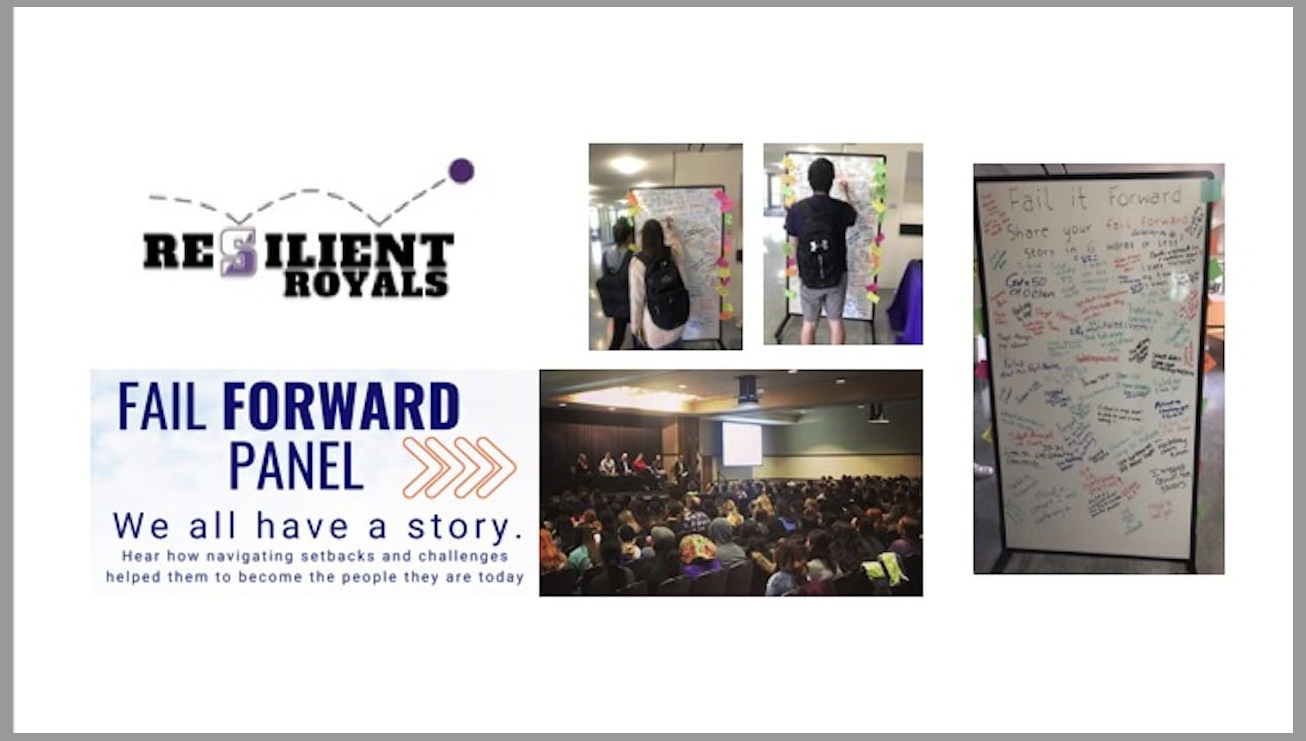Resilient Royals Wins National Prize

Those of us who are older recall growing-up hearing the lyrics to the old 1936 song “pick yourself up, dust yourself off, and start all over again.” The Jerome Kern and Dorothy Fields song about endurance was used to encourage us to be resilient when we stumbled and fell.
Colleges today are composing new creations to encourage the same endurance to overcome hardships among their students and The University of Scranton’s innovative resiliency programming received a national accolade in being awarded the Jesuit Association of Student Personnel Administrators’ 2021 Ignatian Medal for Outstanding Academic Partnership.
Scranton’s Resilient Royals initiative, developed by Student Life staff and faculty partners, includes signature events and peer education components, as well as resilience training embedded into the classroom curriculum. The programming is intended to address student needs related to their resilience and self-compassion based on data gathered from their participation in the National Collegiate Health Assessment.
“The Resilient Royals initiative seeks to normalize struggle and failure while helping students to understand the benefit of growth that can occur by overcoming challenges and for student to develop a greater awareness of resilience and self-compassion,” said Lauren Rivera, J.D., dean of students and assistant vice president for student life at The University of Scranton, who leads the initiative on campus.
Dean Rivera said national research suggests that the current generation of college students often struggles to view challenge or failure with a growth mindset. As a result, higher education professionals are helping students to develop a growth mindset as well as other healthy coping skills to successfully navigate academic and non-academic challenges of college life.
Scranton’s Resilient Royals programming included a 2019 Fail Forward panel discussion which was attended by 298 people. A survey conducted immediately following the program showed 98 percent of respondents strongly agreed or agreed that the Fail Forward Panel helped them to realize that encountering challenges and experiencing failure is a normal part of life, and 94 percent of respondents strongly agreed or agreed that the panel inspired them to reflect on how they have coped with and navigated setbacks and challenges in their own life. A survey conducted of attendees one month after the program showed 54 percent of respondents always or frequently viewed challenges, failures and setbacks in their life as opportunities to learn and grow, and 36 percent of respondents practiced self-compassion.
Resilient Royals programming also included interactive “Fail It Forward Boards,” which were created and displayed at various times and locations on campus. The boards invite students to write in six words or less of a recent struggle or failure. Students were invited to take a message of encouragement written on a sticky notepad or to leave a message of encouragement for another student.
“The boards helped students to recognize that they are not alone in experiencing struggle,” said Dean Rivera, who noted through the Fail It Forward Boards, the Center for Health and Wellness’s Peer Health Education team provided educational information to more than 1,000 students during the 2019-2020 academic year.
In addition to other programming and peer education components, the initiative provided training to faculty members to support their understanding of and ability to integrate resilience development into their courses. Pre- and post-test data of nine faculty members who included resiliency components in their courses show students began to engage in practices to help build their resilience (e.g., mindfulness, gratitude journaling) after talking about resilience in class. Also, pre-and post-test data suggests that students developed a growth mindset over the course of the semester, viewing challenges and failures as opportunities to learn and grow.
Dean Rivera said Resilient Royals was “a labor of love” involving the contribution of many members of the University community, including Stephanie Adamec, director of the University’s Center for Health Education and Wellness; Vince Rocco, faculty specialists for the Alperin Lab in the Kania School of Management; Tara Hamilton-Fay, faculty specialist in biology; Teresa Conte, Ph.D., associate professor and chair of the Nursing Department; Geri Barber, director of the Counselor Training Center of the Panuska College of Professionals Studies; and Sherry Dougherty counselor in the University’s Counseling Center, among others.
The success of the endurance lessons of Resilient Royals illustrate today what the 1936 lyrics say: “Don’t lose your confidence if you slip, be grateful for a pleasant trip, and pick yourself up, dust yourself off, and start all over again.”






